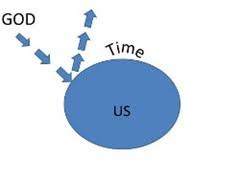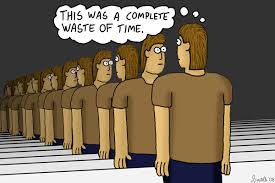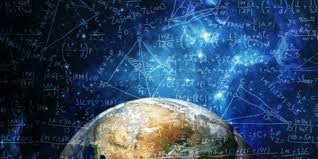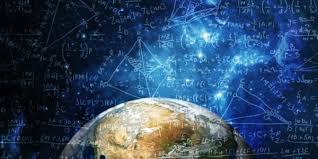Cosmological argument
1/17
Earn XP
Name | Mastery | Learn | Test | Matching | Spaced |
|---|
No study sessions yet.
18 Terms

Define atemporarl causation
This is a form of causality that the first cause of anything that exists needs to be present for effects to have to take place at every moment
Does not look back in time to the universe’s beginnings
God willed things into existence , exists atemporally outside space and time

What is the causal Principle
Things that begin to exist have a cause of their existence

Principle of sufficient reason
Every true fact has an explanation that provides a sufficient reason for why tings are as they are not otherwise
Example student gets an A* . Sufficient reason studying hard

What is an infinite regress
Series of appropriately related members apparently goes back forever without a first member of the series

Define necessary existence
The idea that thigs can exist independently and do not rely on other things to exist
Example - for Descartes God’s existence is necessary

Define contingent existence
The idea that something is dependent on something else for its existence
Example - the world is created by God and is contingent on him creating it

Outline the Kalam argument from temporal causation
P1. Things that begin to exist have a cause of their existence , causal principle
P2. Actual infinities cannot exist
P3. The universe cannot be infinite so it must have a beginning
p4. If the universe has a beginning then it has a cause
P5. If something is caused it is either because of it occurs naturally or willed into existence
C. Natural laws did not exist before the universe so it must have been willed into existence

Outline Aquinas's first way
P1. There are some things in motion
P2. Nothing can move by itself
P3. If we imagine everything was moved by something else there would be an infinite regress of movers
P4. There cannot be an infinite regress as there needs to be a first mover for the series to exist at all
C. Therefore, there must be an unmoved prime mover God
Outline Aquinas' second way
P1. We find, in the world, causes and effects.
P2. Nothing in the world can be the efficient cause of itself
P3. If the chain of causes were infinite and there were no first cause there would be no effects
C1. Therefore, given that there are causes, there cannot be an infinite regress of causes
C2. Therefore, there must be a first cause, which is not itself caused – God

Outline Aquinas's third way
P1: Contingent things exist in the universe
P2: If everything were contingent there would be a time when nothing existed
P3: If this were so, there would be nothing now as nothing comes from nothing
P4: Since contingent things do exist now , there must be something that exists necessarily
C: Therefore, there must be something that exists necessarily, God
Name Aquinas's three ways
Motion
Atemporal causation
Contingency
Outline Descartes argument based on his continuing existence , argument from causation
P1. My existence as a thinking thing with a clear and distinct idea of God needs explaining there are four possibilities for the cause of my existence as a thinking thing : a) Myself b) I have always existed c) My parents d) God
P2. I cannot have caused myself to exist as then I would have to be perfect
P3. Neither have I always existed for then I would be aware of this
P4. So the cause of my existence must lie outside myself
P5. My parents may be the cause of my physical existence but not of me as a thinking mind
P6. The cause of either caused by something else or its own cause
C1. There cannot be an infinite regression of causes
C2. Therefore only God and uncaused necessary being could create and sustain me
From meditation three
Outline leibnz’s argument from the Principle of Sufficient reason
P1. PSR - Every true fact has an explanation that provides a sufficient reason why things are the way they are and not otherwise
P2, Contingent things exist
P3. The series of contingent Fox cannot be sufficiently explained by any contingent fact
P4. So the explanation of the series of contingent facts lies outside of that series of contingent facts
C. Therefore only God and necessary being can ultimately explain the existence of contingent things
What does Kalam mean ?
speech
Summary of Aquinas's first way
Must be an unmoved mover sustaining motion or changer every moment throughout time there would be no motion if God the unmoved mover were not sustaining it in the present
Just as the music stops when the guitarist stops playing the world will stop if God continued to stop being the unmoved mover
Outline the criticism that there is a possibility of an infinite series
Mathematically possible - set theory
Scientifically possible - universe comes to an end as another is created , big bang
Logically possible - coherent to conceive of the universe as infinite
Outline Humes objection to the causal principle
Just because the Big Bang began the universe doesn't mean it had to be caused
Religious believers do not believe that God has a cause so they accept some things that don't have causes
Why not say the universe doesn't have a cause or that it causes itself
What is the principle of sufficient reason
Every true fact has an explanation that provides a sufficient reason for why things are as they are and not otherwise
Example someone getting good grades in their exam